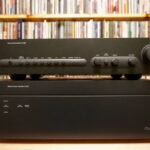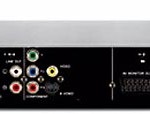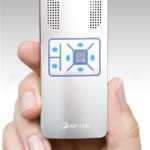Christmas is coming, the goose is getting fat, and some consumers might be getting slaughtered by buying a flood of low priced flat panel TVs now being advertised as just as good as those expensive models. Well known brands plan to unload truckloads full of $599 and $699 flat panels this holiday season. But beware; all is not as it seems to be according to David Berman, Director of Training and Public Relations of Home Theater Specialists of America (HTSA), a trade association of 62 high end consumer electronic retailers across the country.
According to Berman, these TVs may look and feel like the real deal. But what salespeople at Circuit City, Best Buy and Wal-Mart won’t tell you is that these models fall down on performance, reliability and warranties. Most shockingly, many of the TVs that are being presented as High-Definition (HD) aren’t even compatible with most HD programming. HDTV in its best accepted standard has a pixel count of 1920 X 1080, producing a 1080p picture with 2,073,000 pixels. That’s techno-speak for a drop-dead gorgeous, lifelike picture. Many of the TVs being dumped this holiday season are limited to 1366 X 768, producing a picture with approximately 1,000,000 pixels. That’s less than half the pixel clarity of a true HDTV and only 8% of all HD programming comes across in this format.

Another performance and reliability issue comes from the relationship between dark glass and the TV’s ability to light it up. More expensive flat panel TVs have very dark glass with transmission ratios around 31% which maximizes black level and contrast. High output from the TV’s light engine is required to light up dark glass and more expensive panels will invest in higher quality and more durable light engines or chassis. So, even if lower transmission glass is found on some of these less expensive flat panels, their engines rarely provide the performance of the more expensive panels, nor can they drive the picture without compromising the TV’s reliability.
Perhaps the most important performance compromise is in the quality of the processing engine found inside the TV, which takes every incoming signal that is not the same type as the native display of the TV, and converts it to the TV’s display type. An example would be a standard DVD player which outputs at 480i or 480p, sending that signal to a TV that shows 1080p. This up-conversion process requires a superior processing engine and those cost money.
Even more disturbing is the poor or non-existent warranties on many less expensive models. Flat panel TVs are still high technology. Consumers who shell out $599 and $699 for a large flat panel are expecting manufacturers to stand behind their product if a problem arises. With these cheap models, though, the consumer is often on their own even within the limited one year warranty period. With Polaroid’s HDTVs, for example, they will not repair them after the warranty period expires. So buy a Polaroid today, have a problem 366 days from now, and it’s a good as junk.
What difference does it make? Many consumers are investing in these TVs for the long term, but buy the less expensive TVs this Christmas and you might be buying a new one in a year or two.
"Consumers are so enamored with low price that they don’t see the risk of buying an inferior flat panel TV," says Berman. "It’s buyer beware, and cheap is costly in flat panels over the long term."
To help consumers, HTSA has published a list of their favorite flat panel models for this holiday season:
— Sharp D92
— LG Opus
— Hitachi V Series & Director Series
— Pioneer Kuro
— Sony XBR 4 and 5
About HTSA
Home Theater Specialists of America (HTSA) is a national association of electronics experts who service the home and business. HTSA’s members are located in 37 states from coast to coast and each location is staffed with experts who design and install high-end audio, video, automation, lighting, and climate systems for a discriminating clientele. HTSA represents a total buying power of more than $500 million and is supported by 62 retailers, 97 store fronts, more than 800 installers and another 800 sales personnel in the field. The impeccable work of HTSA members is affirmed through partnerships with real estate developers and electronics manufacturers who recognize their commitment to quality.






